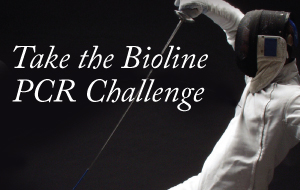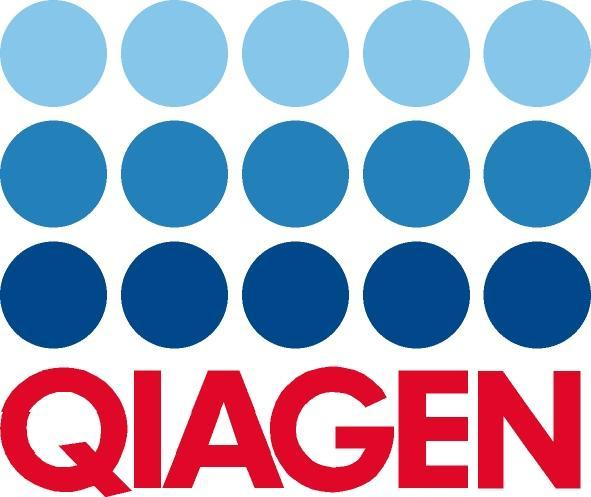|
| The team have been writing a few essays on the effects and implications of Synthetic Biology - discussing the ethics, saftey concerns and economical or human impacts that SynBio can have. Please do have a read through below:
What is Synthetic Biology
Synthetic Biology is a new and developing field in biology that combines the areas of biology, technology and engineering. In 2005 the European Commission convened a high- level expert group to define and examine the development of the new field. The report begins by defining synthetic biology as “the engineering of biology: the synthesis of complex, biologically-based (or inspired) systems which display functions that do not exist in nature. This engineering perspective may be applied at all levels of the hierarchy of biological structures – from individual molecules to whole cells, tissues and organisms. In essence, Synthetic Biology will enable the design of ‘biological systems’ in a rational and systematic way” (European Commission, 2005: 5). The biological devices that can be utilised in Synthetic Biology include enzymes, genetic circuits and even the redesign of existing biological systems. Synthetic Biology draws knowledge from Molecular, Cell and Systems Biology in order to create this new field of highly-scientific engineering. The main focus of the field is in design and construction of things that can be modelled, understood and tuned to meet specific performance criteria. "With Synthetic Biology, conceptual tools and language of engineering become the actual method for approaching biology so that engineering now is more than an analogy, as it was for genetic engineering" (de Lorenzo and Danchin 2008).
In Synthetic Biology, BioBrick's are used and put together in order to make new and useful systems. BioBrick's are standard biological parts made of DNA sequences of defined structure and function. Theses small pieces of DNA are put together to make larger biological systems that can be used for a specific purpose. They have been described as DNA ‘lego bricks’ that can easily be put together in any desired order. Each BioBrick is designed to be incorporated into living cells; most basically put, it is a DNA sequence held in a circular plasmid. Each of these DNA sequences are flanked by universal, precisely-defined, upstream and downstream sequences; however these sequences are not part of the BioBrick itself. The sequences contain restriction enzyme sites, so that parts can be easily removed from their plasmid backbone by the appropriate restriction enzyme and then ligated with another BioBrick. Because the restriction sites remain the same after every ligation, multiple ligations can be done to assemble many BioBricks together to form a fully functioning system.
Synthetic Biology arose from four different intellectual agendas:
1) A practical test of understanding is an ability to reconstitute a functional system from its basic parts, one can test how biology works by building models; therefore Synthetic Biology can give us a greater understanding of biological systems and how they work.
2) Biology can be seen as an extension of Chemistry, therefore Synthetic Biology is an extension of Synthetic Chemistry. The definition of synthetic chemistry is 'the formation or building of complex compounds by uniting the more simple ones. This subject field can ofter chemical, non-organic insite to help develop systems at a molecular level. Molecular level experiments can lead to a better understanding of how biology works and the development of new systems.
3) Natural living systems have evolved to continue to exist rather than being optimised for human understanding and intention. Synthetic Biology has become interested in this agenda, as when we redesign natural living systems, it is possible to test our understanding of the original system and how it works. It could also be possible to design and engineer systems that are easier to study and interact with in order to gain new knowledge and insight.
4) Biology can be used as a technology and biotechnology can be broadly redefined to include engineering of integrated biological systems for purposes of processing information, producing energy, manufacturing chemicals and fabricating materials.
The popularity of Synthetic Biology has grown over the last few years as a result of DNA synthesis technology becoming more accessible and cheaper; it is now more affordable to synthesise DNA rather than to clone it. Advances in the field also rely on progress in other technologies increasing speed and lowering costs. This includes DNA sequencing, synthesis of genes and modelling how synthetic genes behave. DNA sequencing increased the understanding of components and organisation of natural biological systems, and the technology that synthesises genes provides the ability to test designs of new parts. Without these advances in technology and their lower costs, Synthetic Biology would not have made as much progression!
Synthetic Biology has done many amazing things! To mention a few; scientists have made plants that glow in the dark, hoping to replace lamps in houses so as to use less electricity, researchers have also grafted human skin cells to frames meshed with spider silk, illustrating that Synthetic Biology can be applied in the health and medical fields as well as in the fields of technology and engineering.
Synthetic Biology is growing rapidly and loads of people are getting involved in order to develop new, novel ideas. Students and academics from many different backgrounds are coming together to make a difference in this new and exciting area of study and research. Students can get involved with the iGEM competition (https://igem.org/Main_Page) which is a worldwide competition where young scientists work on synthetic biology projects each year. More synthetic biology degree courses and conferences are popping up all over, so it is easy to get involved in this innovative new field!
References:
http://synberc.org/sites/default/files/Taking%20a%20look%20at%20a%20field%20in%20the%20making.pdf
http://synberc.org/what-is-synbio
http://en.wikipedia.org/wiki/Synthetic_biology
Ethics in Synthetic Biology
Synthetic biology is a growing technology with many new and exciting applications. However along with any new technology comes new ethical issues that need to be addressed. Taking into account these concerns allows this new technology to progress in a safe and ethical manner. The public are highly concerned with what scientists get up to in their labs and if there is enough regulation and reasons, other than personal interest, behind their research. In this article we will discuss how synthetic biology can benefit society, the ethical issues that surround synthetic biology and how synthetic biology aims to address these issues and therefore conduct ethical research.
Introduction to Synthetic Biology
Synthetic biology is a new area of research that takes advantage of molecular genetics to create new devices not seen in nature to solve modern issues. DNA is taken from different organisms and put together in novel orders and re-inserted into a new chassis (Usually bacteria or yeast cells). This DNA codes for proteins which are then expressed in the cells for a particular function eg, proteins that convert cellulose into biofuels. The sequences of these DNA parts are open source; so can be accessed by many people. This means that anyone with an idea could create new exciting devices to help solve problems in society.
Potential Applications of Synthetic Biology
Synthetic biology has many applications some we already know about and are on our way to achieving, while others haven’t even been discovered! One of the applications is being able to make biofuels from cellulose (which can be collected from waste paper). This means we could grow bacteria in big vats to produce biofuels and use this as an alternative to fossil fuels as bacteria form a readily available, renewable source. Also using synthetic biology means that we could save space on land which can be used to farm food or alternatively aid towards forest conservation. Furthermore exploiting synthetic biology for a purpose such as this is much cheaper as keeping bacterial cultures alive is easier than growing corn or extracting fossil fuels.
Other exciting applications of synthetic biology include detection devices in diagnostics, using bacteria to remove toxins from water etc, bio-circuitry and drug production. These are all beneficial applications that can achieve their purpose at lower energy usage and lower costs. Therefore Synthetic biology can be used for worthwhile research?
Ethical Issues Raised by Synthetic Biology
Of course, as with any scientific research, there are ethical issues that arise. One is the economical implications of using synthetic biology to solve problems. As discussed earlier, the applications of synthetic biology have the potential to do some amazing things, however if some of the solutions are implemented there is a potential for a large sector of work to lose jobs. This means companies will become obsolete and no longer be undertaking business and this is not good for economic growth, especially in the developing world. For example if Palm Oil is made synthetically, it is possible that the industry for farming Palm Oil may be affected. What will happen to the workers on the plantations?
Another ethical issue to be considered is the ownership of devices and DNA sequences engineered. Recently a law has been passed stating that any naturally occurring sequence of DNA cannot be patented, only human designed sequences can be patented. Therefore none of the naturally occurring genes can be owned by any one person or organisation and anyone can use the sequences as they are open source. Once again there are economic implications to consider because of this. An example is business growth, any two companies could make the same device and neither would make a profit (however some people think a change in the way businesses work would not necessarily be a bad thing).
As mentioned above, most of the DNA sequences in synthetic biology are open source. This means anyone can access them and, if they have a molecular biology lab, can create devices containing these sequences. This means that potentially someone with enough knowledge and interest could take harmful genes and use these to create bio-weapons. This issue hoes by the name of bioterrorism. This concern leads to numerous questions; should all DNA sequences be made publicly available? Should some of the sequences be treated with caution and be regulated? And should these sequences only be available to people who are granted permission on certain terms agreed, ethical terms?
The issue of Bio-terrorism leads to the issue of regulation. Currently there are not many regulatory bodies around for Synthetic Biology because it is a relatively new field. However, there is self regulation ongoing in the field but many people are concerned that this is not enough. At the moment, Synthetic Biology practises are regulated by genetic modification laws and bodies etc. One of these organisations is the UN Bioweapons convention, which controls the convention of biological diversity on an international level. There are also many directives that apply to europe and a separate set of organisations for the USA. However these are all GMO (genetically modified organism) specific and not specific to Synthetic Biology techniques as such.
Furthermore, there are concerns about the safety of the modified organisms that synthetic biology creates. As these organisms are classed as "new" it sometimes isn't possible to predict what they will do, or what they will effect if they are prematurely released into the environment. Genes for antibiotic resistance are inserted into bacteria in plasmids as a way to select for the colonies you want during transformation and growth of the bacterial strain; these could be passed on to virulent strains furthering problems with antibiotic resistance if the bacteria was not kept in a controlled area and accidentally released. Protocols need to be put in place to ensure safety when working with bacteria in the lab and that rigorous testing occurs before any release of these genetically modified bacteria, as well as approval from regulatory boards.
The final issue that will be discussed is the religious problems surrounding Synthetic Biology. Some Religious organisations feel that work done in fields such as Synthetic Biology and Genetic Engineering is “playing God”. Synthetic biology manipulates genetic material of single celled organisms and can be deemed wrong because it is “unnatural” to do such things. An argument against this is that these tools are placed on the earth and we are utislising them to the best of our ability as God would have wanted us to. Synthetic biologists need to address this and give reassurance to show that although we are changing organisms our motives and intentions are to improve society.
How to Overcome Ethical Issues in Synthetic Biology
In synthetic biology we work towards overcoming these ethical issues, and strive for excellence within our research.
There are currently laws that regulate what can and can’t be done in Synthetic Biology, however it has been suggested that an independent regulatory body should be employed to govern Synthetic Biology and make sure there are no, from the perspective of non-scientists, unethical research projects that go ahead. This is something that is currently being worked on in the SynBio community.
A way to overcome the ethical issue of bioterrorism and dangerous biological parts is to regulate their distribution. This means that DNA sequences that code for toxin producing enzymes or other similar dangerous biological elements are more highly controlled and only accessible when specific permissions are granted and there is a good reason for needing to undergo research using those parts.
The economic issues caused by Synthetic Biology are a little more difficult to overcome. As it is a new field most of the products it offers are in early development so for the time being potential job losses will not occur. If some products do become widely available, the hope is that the jobs will be transferred to a different sector of work based around the new device. Although by making the technology open source and free from patents, profit will be hard to reach and no boost in the economy will occur in this way. Therefore some form of business strategy would need to be developed to ensure money is made. It could be seen that in keeping the prices low, by lack of patents and open source genes, will aid developing countries, solve worldwide problems and still have the ability to make money as it would be available to a wider audience.
Synthetic biology and ethics overview
Synthetic Biology is a new and exciting technology with many useful applications that would be beneficial for society if it were to be embraced. There are ethical and economical issues that come with this new field of research, which are not to be ignored but these can be overcome and the potential benefits outweigh the harms and disadvantages of the research.
References
Synthetic biology 101: What is synthetic biology? (2013) See: [http://www.synbioproject.org/topics/synbio101/definition/] (Accessed 29/07/2013)
Balmer, A. P. Martin (2008) Synthetic Biology, Social and Ethical challenges. BBSRC. see: [http://www.bbsrc.ac.uk/web/files/reviews/0806_synthetic_biology.pdf] (Accessed 29/07/2013)
Bar-Yam, S. et al (2012) The regulation of synthetic biology a guide to the united states european union regulations, rules, and guidelines. see: [http://synberc.org/sites/default/files/Concise%20Guide%20to%20Synbio%20Regulation%20OYE%20Jan%202012_0.pdf] (Accessed 29/07/2013)
M. Scmidt (2011) Synthetic biology: Planning for a secure future See: [http://www.actionbioscience.org/biotechnology/schmidt.html#prime] ( Accessed 29/07/2013)
Guan Z, Schmidt M, Pei L, Wei W, Ma K. (2013). Biosafety considerations of synthetic biology in the international Genetically Engineered Machine (iGEM) competition. Bioscience. Vol. 63 (1):25-34
Synthetic Biology: A common-sensor approach to aid
Article to appear soon
|



 "
"








